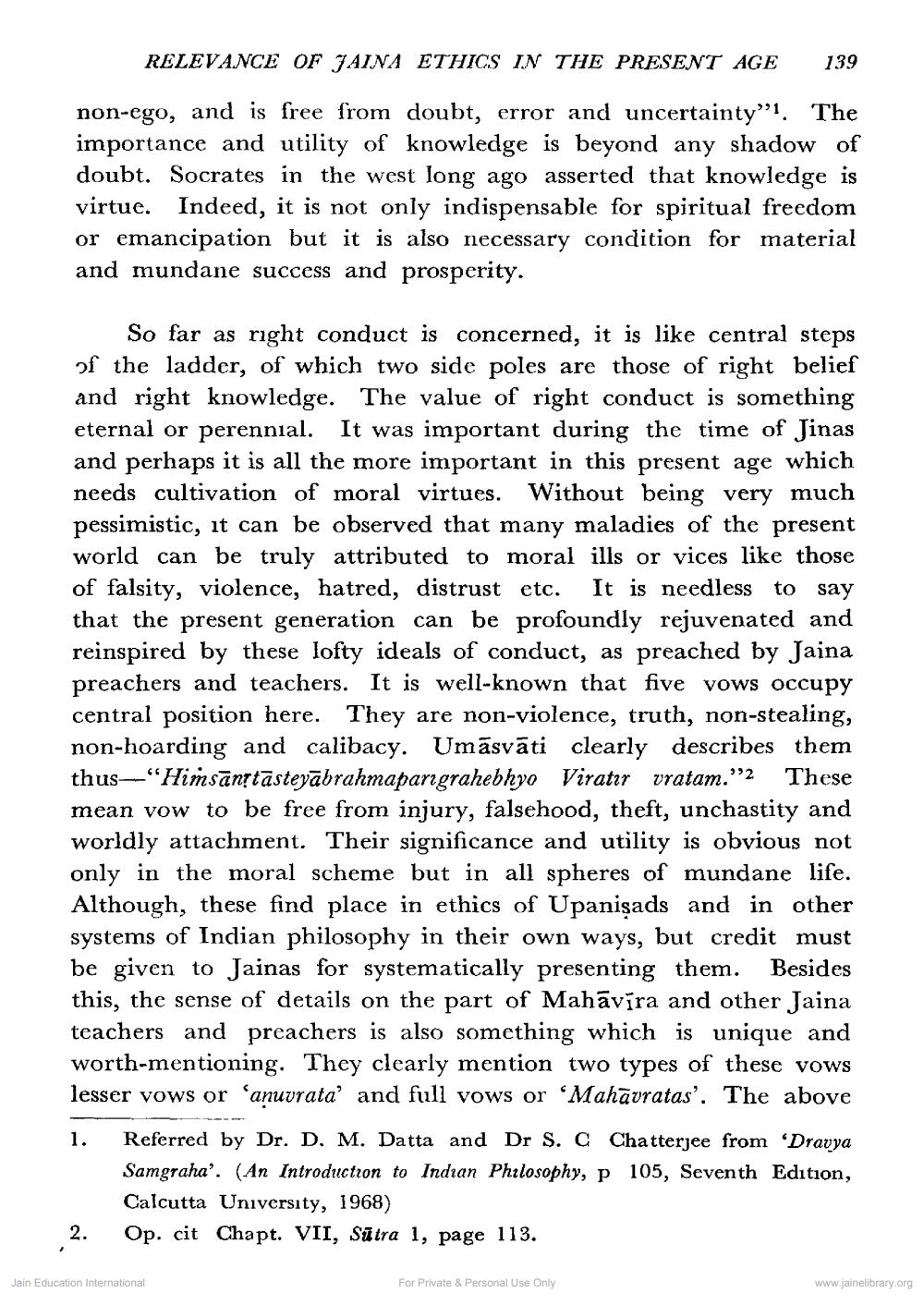________________
RELEVANCE OF JAINA ETHICS IN THE PRESENT AGE
139
non-ego, and is free from doubt, error and uncertainty”1. The importance and utility of knowledge is beyond any shadow of doubt. Socrates in the west long ago asserted that knowledge is virtue. Indeed, it is not only indispensable for spiritual freedom or emancipation but it is also necessary condition for material and mundane success and prosperity.
So far as right conduct is concerned, it is like central steps of the ladder, of which two side poles are those of right belief and right knowledge. The value of right conduct is something eternal or perennial. It was important during the time of Jinas and perhaps it is all the more important in this present age which needs cultivation of moral virtues. Without being very much pessimistic, it can be observed that many maladies of the present world can be truly attributed to moral ills or vices like those of falsity, violence, hatred, distrust etc. It is needless to say that the present generation can be profoundly rejuvenated and reinspired by these lofty ideals of conduct, as preached by Jaina preachers and teachers. It is well-known that five vows occupy central position here. They are non-violence, truth, non-stealing, non-hoarding and calibacy. Umāsvāti clearly describes them thus—"Himsāntāsteyābrahmaparigrahebhyo Viratır vratam."2 These mean vow to be free from injury, falsehood, theft, unchastity and worldly attachment. Their significance and utility is obvious not only in the moral scheme but in all spheres of mundane life. Although, these find place in ethics of Upanişads and in other systems of Indian philosophy in their own ways, but credit must be given to Jainas for systematically presenting them. Besides this, the sense of details on the part of Mahāvīra and other Jaina teachers and preachers is also something which is unique and worth-mentioning. They clearly mention two types of these vows lesser vows or 'anuvrata' and full vows or ‘Mahāvratas'. The above 1. Referred by Dr. D. M. Datta and Dr S. C Chatterjee from 'Dravya
Samgraha'. (An Introduction to Indian Philosophy, p 105, Seventh Edition,
Calcutta University, 1968) 2. Op. cit Chapt. VII, Sūtra 1, page 113.
Jain Education International
For Private & Personal Use Only
www.jainelibrary.org




